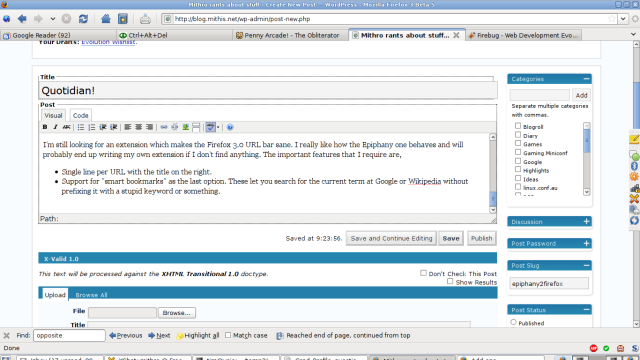Reading cookies from most Firefox versions…
Yesterday, I wrote about how to reading the cookies from Firefox 3.0 from Python. This code snippet extends the previous example by adding code which finds the cookie file on various different operating systems (Windows, Linux and Mac OS X). Hope this helps people who need to do this.
Edit: The latest version of this code can be found at http://blog.mithis.com/cgi-bin/gitweb.cgi and includes numerous fixes and updates.
Also tagged code, cookies, Python, snippet










